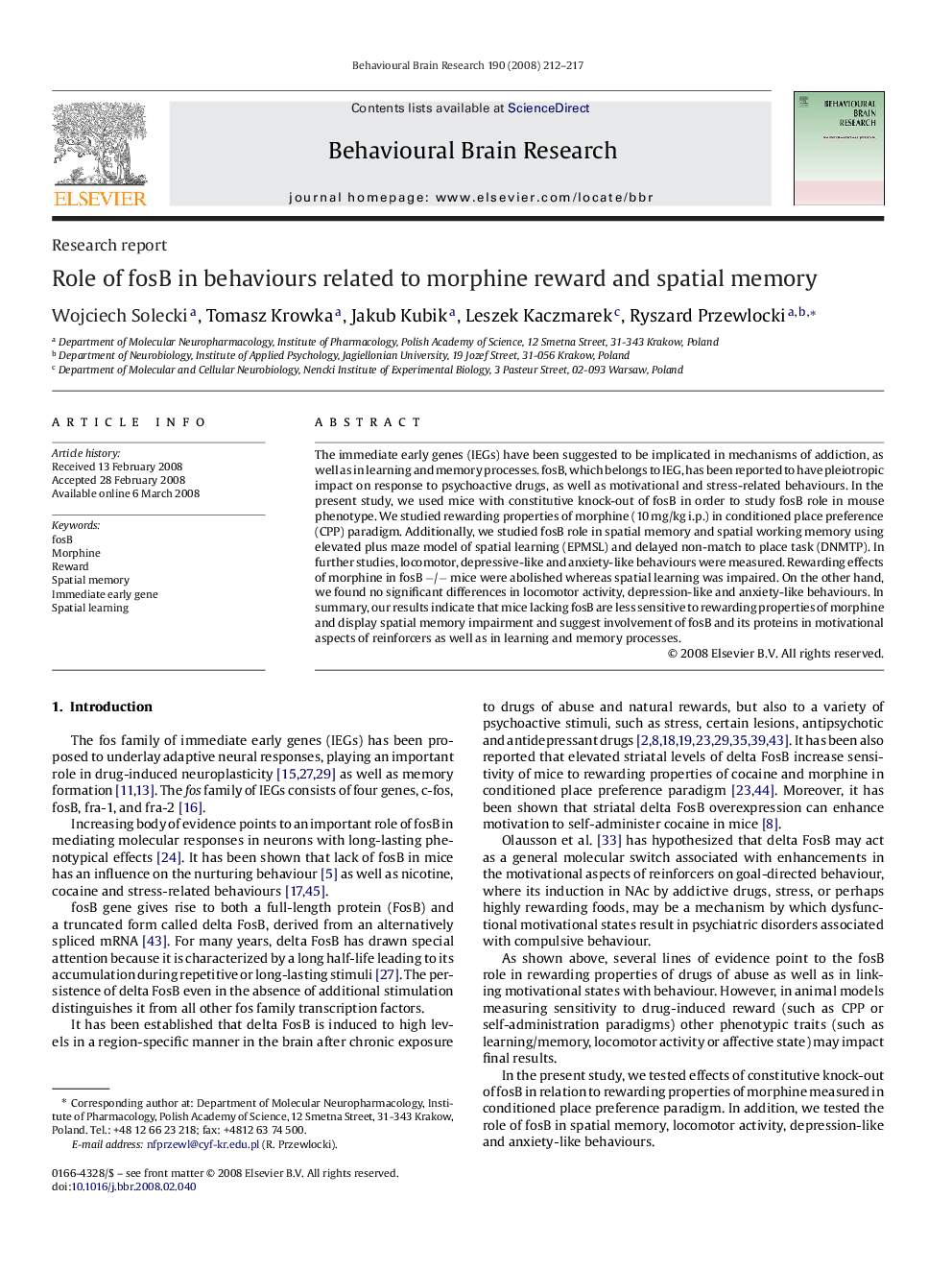| Article ID | Journal | Published Year | Pages | File Type |
|---|---|---|---|---|
| 4314900 | Behavioural Brain Research | 2008 | 6 Pages |
The immediate early genes (IEGs) have been suggested to be implicated in mechanisms of addiction, as well as in learning and memory processes. fosB, which belongs to IEG, has been reported to have pleiotropic impact on response to psychoactive drugs, as well as motivational and stress-related behaviours. In the present study, we used mice with constitutive knock-out of fosB in order to study fosB role in mouse phenotype. We studied rewarding properties of morphine (10 mg/kg i.p.) in conditioned place preference (CPP) paradigm. Additionally, we studied fosB role in spatial memory and spatial working memory using elevated plus maze model of spatial learning (EPMSL) and delayed non-match to place task (DNMTP). In further studies, locomotor, depressive-like and anxiety-like behaviours were measured. Rewarding effects of morphine in fosB −/− mice were abolished whereas spatial learning was impaired. On the other hand, we found no significant differences in locomotor activity, depression-like and anxiety-like behaviours. In summary, our results indicate that mice lacking fosB are less sensitive to rewarding properties of morphine and display spatial memory impairment and suggest involvement of fosB and its proteins in motivational aspects of reinforcers as well as in learning and memory processes.
